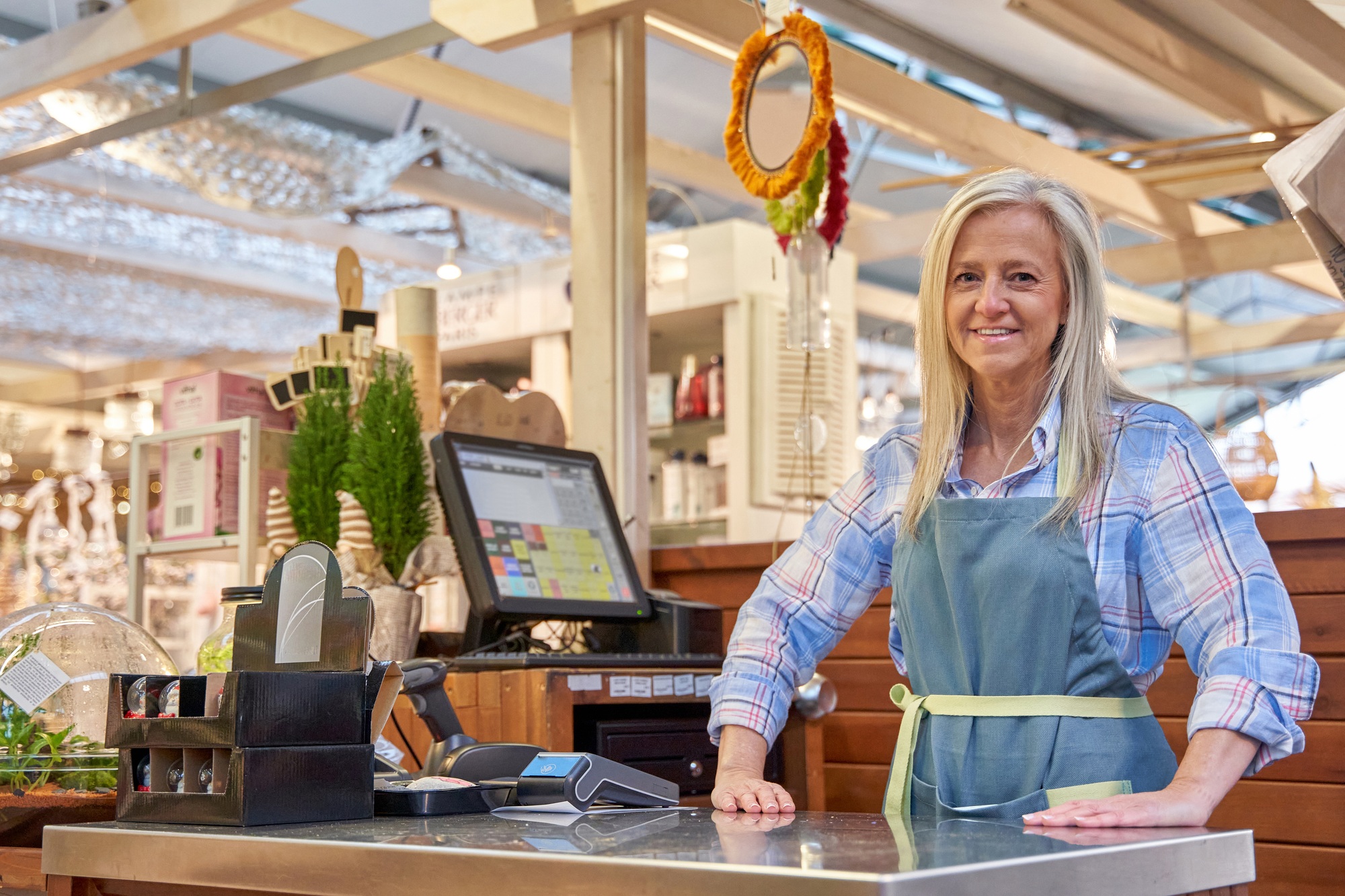Key Takeaways

- First and Last Point of Contact: Restaurant cashiers are crucial for forming customer impressions, as they greet guests upon arrival and handle transactions before customers leave.
- Key Responsibilities: Primary duties include managing transactions, providing excellent customer service, ensuring cleanliness, assisting with staffing, and reporting financial discrepancies.
- Essential Skills: Effective communication, attention to detail, problem-solving abilities, time management, and basic math skills are vital for success in a cashier role.
- Daily Tasks: Cashiers process various payment methods, ensure transaction accuracy, and assist with order accuracy, enhancing overall customer satisfaction.
- Qualifications: A high school diploma is typically required, with preference given to candidates with experience in customer service or retail environments.
- Work Environment: Cashiers work in fast-paced settings and must collaborate with kitchen and front-of-house staff, which emphasizes the importance of clear communication and teamwork.
If you’re considering a role as a restaurant cashier, you’re stepping into a vital position that keeps the dining experience running smoothly. Cashiers are often the first and last point of contact for customers, making their role crucial in shaping impressions. You’ll handle transactions, answer questions, and ensure that every guest leaves satisfied.
In this article, you’ll discover the key responsibilities and skills required for a restaurant cashier. From managing cash registers to providing excellent customer service, understanding this job description can help you excel in your role. Whether you’re new to the workforce or looking to switch careers, knowing what to expect can set you up for success.
Overview of Restaurant Cashier Job Description

The restaurant cashier plays a critical role within your small business, serving as the first and last point of contact for customers. This position not only impacts customer impressions but also contributes to overall satisfaction.
Role and Responsibilities
- Manage Transactions: Handle cash registers, process payments, and ensure accuracy in transactions.
- Provide Customer Service: Greet customers warmly, answer questions about the menu, and address concerns promptly.
- Ensure Cleanliness: Maintain a clean and organized workstation and dining area, enhancing the customer experience.
- Assist with Staffing: Help in training new employees on cash register operations and customer service standards.
- Report Financial Issues: Monitor cash drawer and report discrepancies to management promptly.
Essential Skills Required
- Communication Skills: Exhibit clear verbal and written communication when interacting with customers and team members.
- Attention to Detail: Ensure accuracy in cash handling and transaction processing to minimize errors.
- Problem-Solving Skills: Address customer complaints and issues effectively, finding solutions that enhance satisfaction.
- Time Management: Handle multiple tasks efficiently during busy periods, maintaining service quality.
- Basic Math Skills: Perform simple calculations for transactions, providing accurate change to customers.
By understanding these aspects of the restaurant cashier role, you can better support your staffing and human resources efforts, ensuring your establishment runs smoothly and meets customer expectations.
Daily Tasks of a Restaurant Cashier

Restaurant cashiers perform several essential daily tasks that help keep operations smooth in a small business setting.
Customer Interaction
Cashiers serve as the first and last point of contact for customers. They greet customers when they enter, respond promptly to inquiries, and exhibit friendly demeanor to enhance customer satisfaction. They assist with take-out orders, ensuring accuracy in items and payments. They also handle phone, e-tab, delivery, and catering orders, making effective communication skills key to providing a positive experience.
Payment Processing
Cashiers operate cash registers and credit card machines to process diverse forms of payments, including cash, credit and debit cards, and mobile payments. They accurately process transactions, issue receipts, and manage the cash register, ensuring it balances at the start and end of each shift. This attention to detail is crucial for maintaining financial accuracy and reporting any discrepancies in financial transactions to supervisors or HR staff.
Qualifications for a Restaurant Cashier

Qualifications for a restaurant cashier position focus on educational background and relevant experience, which are essential for effective staffing in small businesses.
Educational Requirements
A restaurant cashier typically requires a high school diploma or its equivalent. This educational standard is sufficient for most employers in the food service industry. While advanced degrees aren’t necessary, having basic math skills and customer service knowledge provides a solid foundation for performing daily tasks effectively.
Experience Preferences
Employers often favor candidates with 0-2 years of experience in relevant fields, such as customer service or retail. Previous experience handling cash and operating a point-of-sale (POS) system enhances a candidate’s profile. Additional exposure to customer interactions may improve both service quality and operational efficiency in a small business setting.
Working Environment

Restaurant cashiers operate in a fast-paced environment, serving as the primary point of contact for customers in the front of the house. Their work area includes cash registers, credit card machines, and sometimes point-of-sale (POS) systems, all of which require organization and cleanliness.
Team Dynamics
As a cashier, you’re part of a larger team consisting of kitchen staff, servers, and other front-of-house employees. Collaboration with these team members ensures timely service and enhances customer satisfaction. Clear communication is crucial, as it’s essential to coordinate with colleagues during peak hours and special events. Your role helps streamline operations, making your contribution vital in a small business setting.
Stress Management
Working as a cashier can be stressful, especially during busy periods. Managing multiple tasks like processing transactions, answering customer inquiries, and handling phone orders necessitates effective stress management. Prioritizing tasks and maintaining a calm demeanor under pressure enables you to perform efficiently. Developing strong time management skills improves your ability to juggle responsibilities, which can reduce the intensity of stress in this role.
Conclusion

Understanding the restaurant cashier role equips you with the knowledge to excel in this vital position. You’ll play a crucial part in shaping customer experiences and ensuring smooth operations. Mastering essential skills like communication and time management will not only enhance your performance but also contribute to overall customer satisfaction.
As you navigate the fast-paced environment of a restaurant, remember that teamwork and effective communication are key. Embrace the challenges that come with busy shifts and use them as opportunities to grow. With the right mindset and skills, you can thrive as a restaurant cashier and make a positive impact on your team and customers alike.
Frequently Asked Questions

What are the main responsibilities of a restaurant cashier?
Restaurant cashiers are responsible for managing cash registers, processing payments, and providing excellent customer service. They greet customers, assist with inquiries, maintain cleanliness, and ensure financial accuracy by balancing the register.
What skills are essential for a restaurant cashier?
Essential skills for a restaurant cashier include strong communication, attention to detail, problem-solving, time management, and basic math skills. These abilities help cashiers provide exceptional service and manage their tasks effectively.
What qualifications are needed to be a restaurant cashier?
Typically, a high school diploma or equivalent is required for a restaurant cashier position. Employers often prefer candidates with 0-2 years of experience in customer service or retail, especially if they have experience with cash handling and POS systems.
What is the work environment like for cashiers in restaurants?
Cashiers work in fast-paced environments where organization and cleanliness are crucial. They collaborate with kitchen staff and servers to ensure timely service, especially during busy periods, making effective communication vital.
How can cashiers manage stress during busy periods?
Cashiers can manage stress by developing strong time management skills and the ability to prioritize tasks. Staying calm and composed during high-pressure situations helps them perform efficiently, ensuring customer satisfaction and smooth operations.
Image Via Envato



